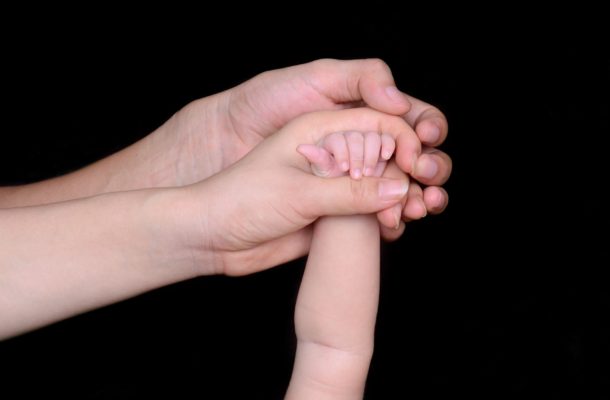Support grieving mums too this Mother’s Day

As mothers around Australia celebrate Mother’s Day this Sunday we should also remember those who have experienced pregnancy or infant loss.
Author Ann-Maree Imrie says Mother’s Day can be particularly difficult. “I don’t think you ever get over the loss of a baby or child and Mother’s Day can be very hard and bring up a range of emotions. Especially, for women who have not gone on to have another baby, they’re left feeling like invisible mothers on such a special day.”
At 29 weeks pregnant on Friday, January 30, 2015, Mrs Imrie could not feel any movement from her baby. Tests revealed the baby had no heartbeat and had died in-utero. The next day she gave birth to her stillborn son Xavier Rocket Imrie.
She had been a social worker for 10 years working with families, including those experiencing bereavement themselves. Sharing in the pain of love and loss with people Mrs Imrie learned a lot about grief, however, she didn’t realise its full devastation until the stillbirth of her baby.
“Holding our lifeless baby boy in my arms and burying him, shifted something deep inside me that will never shift back,” Mrs Imrie says. “The months that followed were a blur where I was in a total fog and unable to function.”
Mrs Imrie and her husband Wade took time off work in an attempt to ‘recover’ and try to rebuild their lives and the couple decided to try for another baby. On March 14, 2017, Kai Rocket Imrie arrived and in a special coincidence, he was born at 2:18 pm – the exact same time as his older brother Xavier.
“It has been a long, slow process but we are lucky to be surrounded with love and support which has helped us navigate our new lives without our baby boy,” she says.
Mrs Imrie found comfort in reading other people’s stories of baby loss and their process of healing so shares her story in the hope of doing the same for others. She works to raise the awareness and break the silence around pregnancy and infant loss.
Six babies are stillborn every day in Australia, yet Mrs Imrie feels the subject is still taboo and so she’s trying to break the silence.
“Sadly, some people don’t recognise a stillborn baby as a ‘legitimate’ death,” she says. “A baby’s death is easy to dismiss because often it’s only the parents and very close friends or family who get to meet the baby so it’s like an invisible loss to others.”
“Stillbirth is also not talked about as a possibility in medical appointments during pregnancy, so often parents don’t realise how common it is until they are unfortunate enough to experience it themselves,” she says.
While well-meaning people may suggest that ‘You can have another baby’, ‘it wasn’t meant to be’ or ‘there must have been something wrong with the baby’, the pain of the loss can be hard to bear. Mrs Imrie found more consolation in a quote by the late author and sociology professor Morrie Schwartz who observed that “Death ends a life, not a relationship”.
Mrs Imrie therefore wrote her children’s picture book You Could Have Been… for bereaved parents to continue a relationship with their lost child. She hopes bereaved parents may read it in memory of their lost child, no matter their gestation or age.
The book is about a parent’s wonder of who their child could have been if they’d had the chance to grow up and she donates a portion of her sales from to the Stillbirth Foundation.
“This is really important to me, as the Stillbirth Foundation are working hard to reduce to rate of stillbirth through funding for research, education and advocacy.” The Foundation is the only Australian charity dedicated to stillbirth research and is funded entirely by the community.
Since its foundation in 2005, the charity has allocated over $1 million towards funding rigorously designed studies focused on preventing still births.

Open Forum is a policy discussion website examining the social, political, economic, cultural and environmental issues of today. We welcome contributions and invite you to follow us on Twitter, Linkedin, Federated Press and Vivaldi Social. We #StandwithUkraine.











